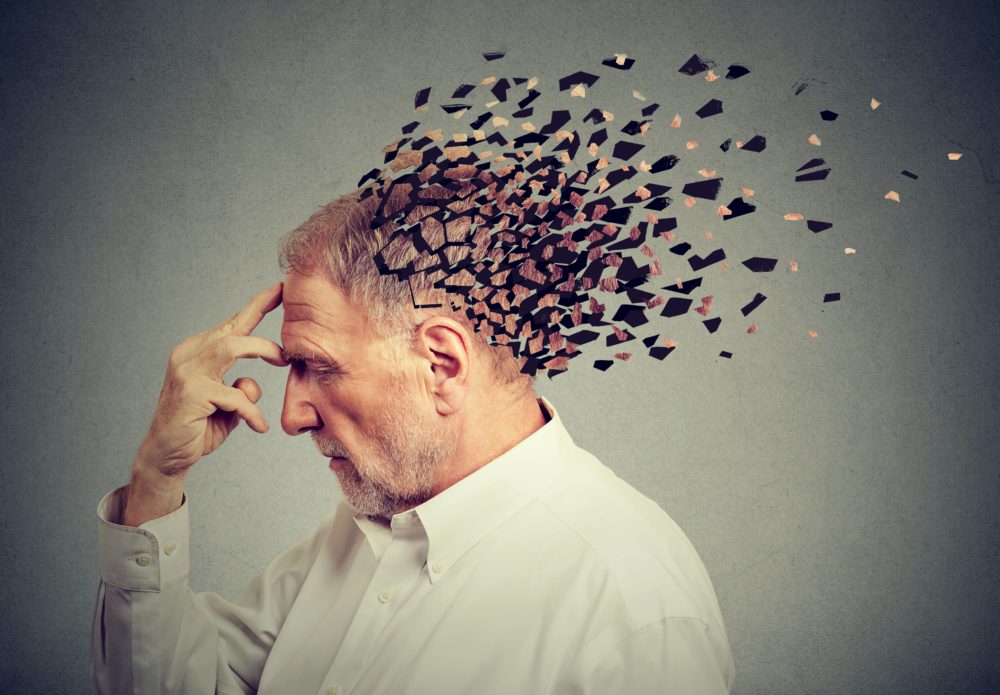
A lot of people equate brain health with having a good memory. However, it is not just about memory. It also involves cognitive function, which includes thinking skills, problem solving and decision-making. As a person ages, it’s normal for many to see these functions change, and those changes can be further affected by medical conditions such as nutritional deficiencies, depression and substance use. The impacts can be so severe that they are classified as dementia because they end up interfering with everyday life. However, making some adjustments to your daily routine can help lower your risk of having these life-impacting conditions.
Here are five simple strategies for better brain health.
- Physical exercise. There are numerous studies that show aerobic exercise, such as brisk walking, can increase blood flow to the brain circuits that control spatial ability and complex thinking. A large Harvard study showed that 90 minutes a week of brisk walking delayed cognitive decline and reduced the possible risk for future Alzheimer’s disease. The 90 minutes can be divided into two 30-minute workouts, for example, and three 10-minute workouts. The goal is to get moving a total of 90 minutes a week. Other types of aerobic exercise that have the same impact include cycling, swimming, dancing, or shopping at the mall. Walking has the lowest risk for injury, while swimming is low impact and it engages nearly every major muscle group. Also, keeping exercise social, competitive and creative may make it more enjoyable, which can help make it a habit. Try integrating exercise into your daily lifestyle, too. For example, take the stairs, walk briskly between errands, and engage in regular exercise breaks throughout the day.
- Stress reduction. Life can be stressful, especially this past year with the COVID pandemic. Studies show that chronic stress can increase the risk of dementia, so it’s important to learn how to manage it. Limit multi-tasking to improve efficiency, diminish distractions and bolster memory performance. For a greater sense of control, get organized and reduce clutter. Keep a positive attitude and strong social relationships. You can also practice meditation. If you think you need additional help, seek help from a professional therapist.
- Sleep well. Did you know restful sleep is crucial for keeping the brain healthy? Sleep helps consolidate memories, and poor sleep can lead to fatigue and a lack of concentration, as well as interfere with learning and memory. To help you get better sleep at night, avoid daytime naps, especially long ones or snoozing late in the afternoon. Limit the number of fluids you drink after 5 p.m., especially caffeinated beverages, so you’re not up all night going to the bathroom. To fall asleep, try relaxation methods, such as playing gentle music or reading a book. Also, if you have a sleep disorder, such as obstructive sleep apnea, be sure to get treatment because this condition can increase your risk of dementia.
- Healthy diet. There is some evidence that following a Mediterranean diet can help reduce the risk of heart diseases and dementia. This diet includes eating plenty of fruits, vegetables, nuts, legumes, whole grains, vegetable oils, fish, and other lean proteins. Generally, what is good for the heart is good for the brain. Also, be sure to limit alcoholic beverages. It’s best to keep liquid libations to the recommended daily amount such as a five-ounce glass of wine, or a 12-ounce beer.
- Brain exercises. Scientists recommend that we remain mentally stimulated as we age. There’s truth to the saying, “Use it, or lose it.” So try learning a new language or skill. The goal is to train, not to strain. If doing a crossword puzzle or playing Sudoku stresses you out, then don’t bother. Memory training, such as using categorizing or the focus-and-frame method, can improve one’s ability to remember quickly. There are a lot of “brain games” out there, but they have not all been tested to see if they reduce the risk for dementia. Although most video games on the market improve the attention part of our cognition, there are games like Wii tennis that engage the whole body to the point of working up a sweat, which can count as both mental and aerobic exercise.
Final thoughts
By making some simple lifestyle changes you can help reduce your risk of losing cognitive function and potentially having dementia. If you have any serious concerns about what approach is best, ask your doctor. Taking the time now to make a couple of adjustments to your daily or weekly routine can really pay off later in life.
Wynnelena C. Canio, M.D., is the Chief of Geriatric Medicine and the Continuing Care Department at Kaiser Permanente Santa Rosa.




